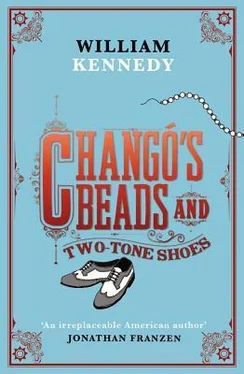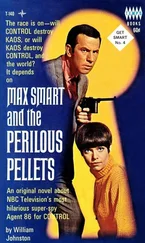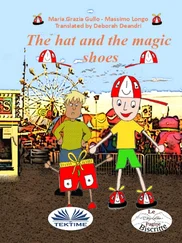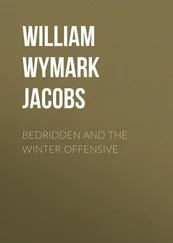“Right, George Quinn. Somebody threw a rock at a window and he got cut, down on Pearl Street.”
“Ain’t seen George in a whole lot of years. He wrote numbers.”
“He wrote your father’s hit in 1937, eleven thousand dollars, right?”
“Whoa! How you know that, Bish, how you know about my father’s hit?”
“Quinn told me. George is his father.”
“Yeah? I never put ’em together. Quinn, where’d he go to?”
“He’ll be along. You’re feeling better, Tremont?”
“Had to. Couldn’t feel no worse. They got good drugs in this place.”
A nurse came up to Matt with a note. “Father Matthew?” And Matt said yes. “We don’t take messages but the caller said you’re a priest. You’re that priest in the papers.”
“Guilty,” Matt said.
Quinn’s message to Matt: he was heading for the Fort Orange Club. The message came in a few minutes ago. “I have to make a phone call, Tremont, be right back.”
Tremont propped himself up on one elbow. “Hey George,” he said, and George turned to look. “You George Quinn.”
“That’s what they tell me.” A nurse came to bandage George’s cut and said he was lucky, the glass didn’t penetrate, no stitches needed. She gave Vivian extra bandages for later.
“You remember me, George?” Tremont asked.
George took a good look. “Tremont? Big Jimmy’s boy?”
“Yeah, George. That’s me.”
“You ran errands for Jimmy, and you set pins in Jimmy Smith’s alleys on Green Street. They moved those alleys to State Street.”
“What a memory. How you doin’, George?”
“Getting something fixed up here. Had an accident. Your father owes me money.”
“How much he owe you?”
“I don’t remember. Two hundred, maybe. Jimmy’ll remember.”
“Jimmy won’t remember. Jimmy died eleven years ago.”
“Is that so? Sorry to hear that. You got old, Tremont.”
“You too, George. Whole world got old since we saw each other.”
Tremont looked out the window and saw Roy and Ben Jones come out of the Brothers, Zuki not in sight, but he could be outside waiting for me to come out. If he comes in here I’m a sittin’ damn duck.
Vivian had gone to ask the nurse to call them a cab and now she came back and told George people were breaking windows in cabs, so no cabs are running downtown.
“We’ll walk,” George said. “It’s a nice night out, isn’t it?”
“It is,” Vivian said. “It’s a very lovely night, and we haven’t even had dinner yet.”
Tremont got off his stretcher. “Where you headed?”
“The DeWitt,” said Vivian.
“Go down this hallway,” Tremont said. “It’s shorter. I’m goin’ the same direction.” He moved down the hall with them.
“What about your friend the priest,” Vivian asked.
“Makin’ a call. He’ll be along.”
Tremont lifted a towel off a small stack of laundry and put it under his arm, then led them out the hospital’s south entrance, half a block away from Zuki already. He put the towel over his head and walked a step ahead of George and Vivian, blocking the rear vision of himself if Zuki was looking. They passed the Palace with a movie called Up Against , a black man’s face on the poster. Tremont wanted a drink, needed a drink, found a few bills in his pocket, seven bucks left from the Zuki seventy-five. The Four Spot was right in the next block, ask George.
“Tell you what, George,” Tremont said, “we go to the Four Spot over there. I’ll buy a drink for you and your lady, pay off a little of what Big Jimmy owes you.”
“We should get to the DeWitt, George,” Vivian said. “They’re probably serving dinner.”
“Never stop a man from paying what he owes you,” George said.
“I don’t owe you, George. My daddy was who owed you.”
“All contributions gratefully accepted.”
George looked at the Four Spot, one of five buildings on Clinton Square. This was Johnny Palermo’s place, steaks and chops, banquet hall in back, Johnny got a new sign. He ran it as a speakeasy in Prohibition with rooms upstairs in the building next door, you could bring a girl and if they raided it you could go up to the roof and jump onto Johnny’s roof, then drop onto Chapel Street. George bowled with Johnny at the Rice Alleys on the corner, but the alleys are gone. Where did they go? Young Negroes going in. You don’t often see them in Johnny’s, once in a while maybe.
The bar in the Four Spot was half-full with twenty young black men and women, and more in the back room. All eyes went to George and Vivian as they stood at the bar.
“Double port, and what my friends want,” Tremont said to the white bartender. He took the only barstool. “I don’t sit down I’ll fall down.”
“A small lager, please,” Vivian said.
“Make that two,” George said. He looked at the hangings on the walls: Truman, Stalin, and Roosevelt on the cover of Life , World War Two victory headlines, troops marching through Fifth Avenue confetti. War, but not George’s war. He looked carefully at all the young black men in the room, trying to remember the one who threw the rock. He didn’t see anybody he recognized.
“You lookin’ for somebody?” one older youth asked.
“He’s with me,” Tremont said.
“Yeah? Who you with?”
“We gettin’ a little taste, that all right?” Tremont said. The talk stopped. Chain, chain, chain , Aretha sang.
“People come in here lookin’ us over,” the man said.
“What’s wrong with lookin’?” Tremont said. “This man just come out of the hospital, got hit with a rock. We here gettin’ away from rocks.”
“Nobody here throwin’ rocks.”
“Then maybe we’re safe,” Tremont said.
“The cops were just in here lookin’ around for somebody,” the barman said. “They had a witness, somebody threw a rock through a liquor store window and looted it.”
“They threw rocks in the trolley strike,” George said to the young black who didn’t like to be looked at. “The National Guard shot people throwing rocks and then they shot people who weren’t throwing them. Nineteen-oh-one. They killed twenty-seven people. Frankie Pringle was standing next to me, got hit by a rock and then somebody shot him.” George pointed at the door. “Down on Broadway, near the station, fella threw a rock and killed an old widow woman. He had to leave town. Thirty-seven people got killed, some with rocks, some shot.”
George sipped his lager. “Beer is very good. Jimmy draws a good glass of beer. Thirty-seven people killed by rocks.” Chain, chain, chain , Aretha sang and George asked the barman, “Johnny around tonight?”
“No Johnnys here, my friend.”
The bartender, a burly man with slick black hair and wary eyes, doesn’t seem to trust people. George asked, “You don’t know Johnny?”
“No.”
“You been here long?”
“About a year.”
“What do they call you?”
“Howie. They call me Howie.”
“I’m talking about Johnny Palermo,” George said. “He owns this place. He used to make cigars. Had billboards all over town. Get behind a Palermo Cigar. He’d bring Jimmy Durante to town and raise thousands for St. Anthony’s church. Johnny and I bowled together.”
“The Marcello brothers own this place for ten years,” Howie said. “Maybe they bought it from Johnny.”
“Did you hear about anybody throwing Molotov cocktails?” Vivian asked.
“No Molotovs,” Howie said, “but I make a great Manhattan. Have a few of those your head explodes, just like a Molotov.”
“I don’t think I want my head to explode tonight,” Vivian said.
George turned back to the hostile youth, raising his finger as he spoke, as if the earlier conversation were still in progress. “I was born three blocks from here, on Columbia Street. You ever hear of my father? Daniel Quinn? Famous man in Albany. Did everything, went everywhere, saw everybody, shook hands with Lincoln, saw Lafayette when he came to Albany to be buried, wasn’t anything he didn’t know about this town and he was colored.”
Читать дальше












